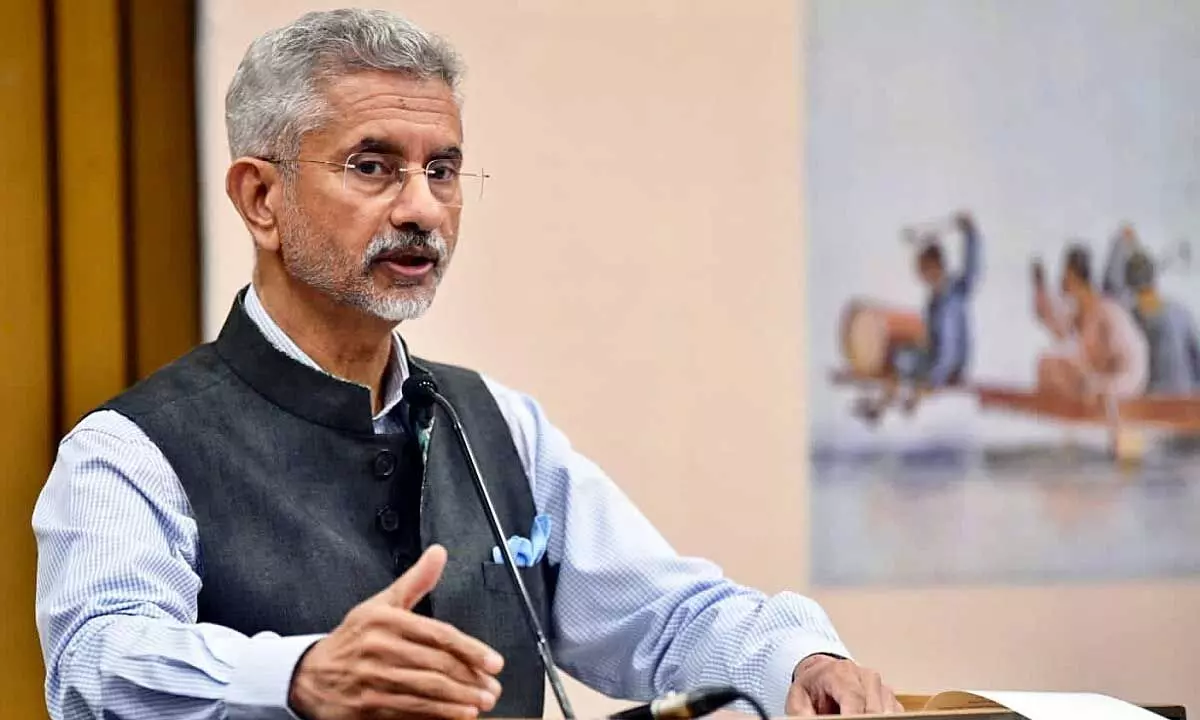Wrong of Jaishankar to blame India Inc for trade imbalance with China
External Affairs Minister S. Jaishankar’s statement that corporate India is responsible for the trade imbalance with China is a case of blaming the victim.
image for illustrative purpose

External Affairs Minister S. Jaishankar’s statement that corporate India is responsible for the trade imbalance with China is a case of blaming the victim. His ire is directed at India Inc for ignoring adequate sourcing capabilities within the country. “Indian corporates haven’t developed the kind of backward [linkages], vendor supplies, components and parts, ingredients and intermediates that should be supporting us,” he said while speaking at the annual Asia Economic Dialogue, organized by his Ministry, in Pune.
Jaishankar was wise enough to acknowledge the government's responsibility for the imbalance while also asserting that a corrective step has been taken by his government: “Atmanirbhar Bharat… it is not a slogan. It is actually a message to industry, to the people saying ‘please, what you can source from India, you have an obligation to source, not as a moral obligation’. Our national security is at threat if you have this kind of massive external exposure.”
He also spoke about support systems like the production-linked incentives (PLI) scheme. He rightly said that a major economy like India cannot be service-centric and neglect manufacturing, adding that a good industrial capacity is a prerequisite for national security requirements. Much of what he said makes a lot of sense. A robust manufacturing sector is important not just for slashing the current account deficit and strengthening national security but also for the smooth transition of India to the developed nation. Manufacturing has immense potential to create jobs and help enhance prosperity.
For this purpose, the Narendra Modi government, and the earlier ones, have taken a number of steps, some of which Jaishankar mentioned in his address. But to what avail? In the last calendar year, India-China trade touched the $135.98-billion mark, with our trade deficit more than $100 billion.
This after Galwan, after Beijing’s nefarious plans to claim our territory along the Line of Actual Control, its support to Pakistan to carry out violent jihad against us, and its designs to dump its goods in India. It would be wrong to say that the Modi government is not trying hard or there are some inherent problems with the economic policy. The Prime Minister himself, economic ministers, and other government functionaries are keen on promoting industry. Further, the non-BJP led state governments also eagerly look for investment. BJP governments, of course, are on an overdrive. The Yogi Adityanath government recently held an investors’ meet. As per the claim, investment proposals worth lakhs of crores of rupees have been made.
This is not the first time a state has made such a claim after an investors’ meeting. The trillion dollar question is: why don’t such pledges get redeemed?
Jaishankar may think that he has found the answer, or a huge part of it: India Inc is not sincere in its commitment to the nation. The big boys and girls of industry can set up factories in China and even Bangladesh but are reluctant to do so in India, despite his government’s best efforts.
The real answer to the question is different: even after 32 years of economic reforms and enabling measures, policy and decision makers have not been able to shed the statist mindset. It also results in the misuse of law enforcement agencies for political purposes. This is something all political parties are guilty of. The government must address this issue, first and foremost.

